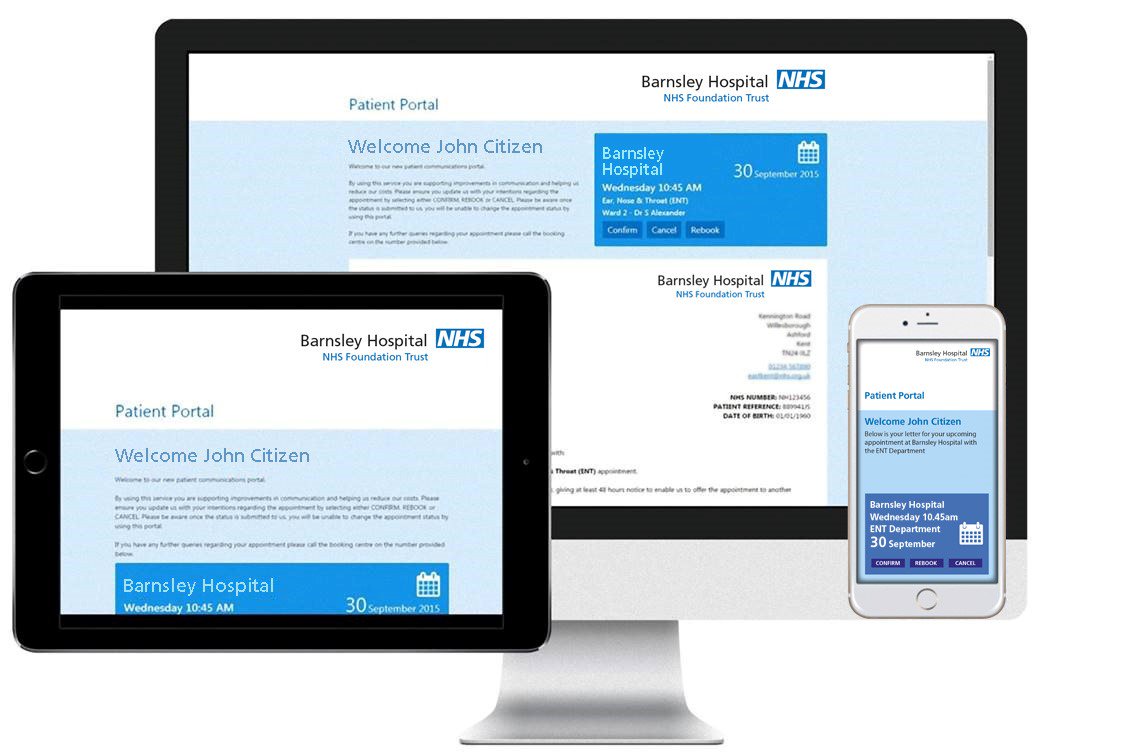Barnsley Hospital NHS Foundation Trust has reduced by 40% the number of outpatient letters it sends, from 200,000 to 120,000 – using a new Patient Portal from Healthcare Communications.
Barnsley was the first to introduce the technology and following a six-month pilot, is rolling it out across the trust – including a new initiative to get patients into hospital more quickly for vital cancer checks.
Healthcare Communications has worked with the NHS for 17 years and supports 100 trusts with multi-channel patient communication technology, such as Appointment Management and Patient Experience surveys. Three other NHS trusts are also rolling out the Patient Portal.
Simon Ainsworth, Barnsley’s Associate Director of Operations for Women’s, Children’s, Outpatients & Support Services said: “One of the huge benefits of the portal is having the confidence and assurance that patients have received the invitation, as we get a digital receipt when it is opened. More than 90% of patients who accept the invitation access it within 24 hours. Like the rest of the NHS, we are working towards a challenging 28-day cancer appointment diagnosis target, and we see this is part of the solution to that. “The potential for the portal is huge. We have already recommended it to several other trusts, and we are going to roll it out everywhere that we can, including pre-assessment and surgery appointments. As patient uptake continues to grow, so too will cost savings. It is also freeing up staff for more real-time contact with patients. They are more available to deal with phone queries, for example.”
Barnsley began piloting the new technology in June 2017. Within three days of its launch, 46% of patients who were offered it had chosen digital letters over traditional post. Among the 30-69 age group, ‘open’ rates are high, at around 60%. If the digital letter is not accessed within 48 hours a postal letter is automatically sent to patients.
Patient Martin Ball, who also works at the trust said: “The application is really simple and intuitive. All the information that I need is on my phone – I don’t have to remember to carry a letter with me to the appointment and it even puts the date straight into my calendar. It’s great.”
The portal along with new multi-channel appointment reminders has also reduced DNAs (‘did not attend’) for appointments by around five per cent. “There was an instant reduction in DNAs in week one,” said Ainsworth. “Before, it was running at between 12-14% a week. Now it’s between eight and nine per cent. It means we are minimising the waste of valuable appointments, and patients are being seen more quickly.”

